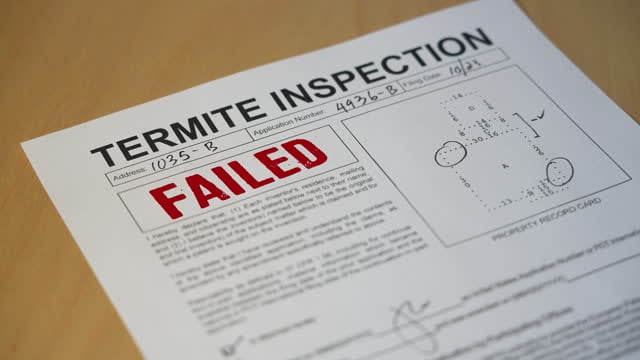Selling a House With Water Damage or Flooding (How to Guide)
Selling a house with water damage, or selling a flooded home, is risky but possible! Sure, it can be a daunting task that’s plagued by complexities and uncertainties.
However, fear not—there’s a solution to transform this challenge into an opportunity.
Table of Contents
Selling a House With Water Damage?
Water damage can be a challenging and emotional experience for homeowners. Whether it’s a burst pipe, severe flooding, or persistent leaks, dealing with the aftermath can be overwhelming.
If you want to know about selling a house with water in the crawl space or have questions about selling a rental property in Southern California, contact us today and let us handle the complexities!
Can You Sell a House With Water Damage?
Absolutely, you can sell a house with water damage, but it’s not a walk in the park. A successful sale is dependent on you being upfront about the issues with potential buyers and fixing the source of the damage. Also highlight the property’s potential and engage with buyers!
It’s a similar situation when selling a house with fire damage in that the key is being transparent.
How to Sell a House That Has Flooded or Been Water Damaged
Selling a water-damaged house involves strategic steps. Start by thoroughly assessing and repairing the damage, and be straight up with potential buyers. Show off the place looking way better, and think about setting a fair price. Team up with real estate experts who know their way around these situations.
Selling a house with foundation issues as well as a damaged home from water? Addressing these concerns upfront is crucial for instilling confidence in potential buyers.
If you’re in Southern California and need assistance on when to sell rental property, reach out to SoCal Home Buyers for expert guidance and support.
1. First Fix the Problem, Then Sell
Before putting your water-damaged house on the market, it’s crucial to address the issues head-on.
While this might seem like an additional hurdle, it can have both advantages and disadvantages:
Pros:
- Increased property value: Repairing a home with water damage enhances its overall condition, potentially boosting its market value.
- Broader buyer pool: A well-maintained property attracts a larger pool of potential buyers, increasing the chances of a quicker sale.
- Smooth negotiations: Proactively handling repairs minimizes negotiation obstacles, as buyers are more likely to make reasonable offers when the property is in good shape.
Cons:
- Upfront costs: Investing in repairs can be financially demanding, requiring an initial investment before your property is sold.
- Time-consuming: Addressing water damage can take longer than expected, with the knock-on effect of a delay in putting it on the market.
- Uncertain returns: While repairs can enhance your property’s appeal, there’s no guarantee that you’ll recoup the full cost through a higher sale price.
Additional reading: Can you write off a loss on the sale of an investment property?
If I Sell My Flooded Home After Repairs, Do I Need to Disclose It?
Disclosing water damage when selling a house, even after repairs, is crucial, especially when considering tenants’ rights when the landlord sells a property.
Transparency builds trust with potential buyers and protects you from legal issues down the line, so clearly communicate the history of water damage, the repairs undertaken, and any preventive measures implemented to provide a comprehensive overview to prospective buyers.
Additional reading: Do you have to disclose mold remediation when selling a house?
2. Selling a House With Water Damage as Is
Sometimes, the most practical approach to offloading a property with water damage is to sell my house as is.
This can be particularly relevant for rental properties where considerations like tax implications, tenant rights, and the timing of the sale come into play.
Pros:
- Saves time and effort: Selling as is means you can skip extensive repairs, rushing the selling process.
- Minimizes financial investment: Avoiding major repairs can save you money upfront, especially if the property is a rental with uncertain future returns.
- Attracts investors: Investors seeking fixer-upper opportunities might be drawn to the property, increasing the likelihood of a quicker sale.
Cons:
- Reduced sale price: Selling a house for cash typically results in a lower sale price since buyers are expected to do the repairs.
- Limited buyer pool: Some buyers may be hesitant to invest in a property with existing water damage, narrowing the pool of potential purchasers.
- Potential legal implication: If not properly disclosed, selling a house with known water damage as is may lead to legal issues. Failure to inform potential buyers about the property’s condition can be considered a lack of transparency.
Can I Sell My Water Damaged House to You?
Absolutely! At SoCal Home Buyers, we specialize in purchasing properties in Southern California, even if they have water damage.
If you’re wondering, “How to sell my flooded house” then hit the button below and let us answer your questions, or read our sell my house fast California guide. We’re here to help. While you can sell via a real estate agent, we’ll always offer you a fair value for cash.
Contact us today for a hassle-free consultation and let’s discuss how we can make the selling process smooth and straightforward for you.
Additional reading: How to sell rental property without paying taxes










